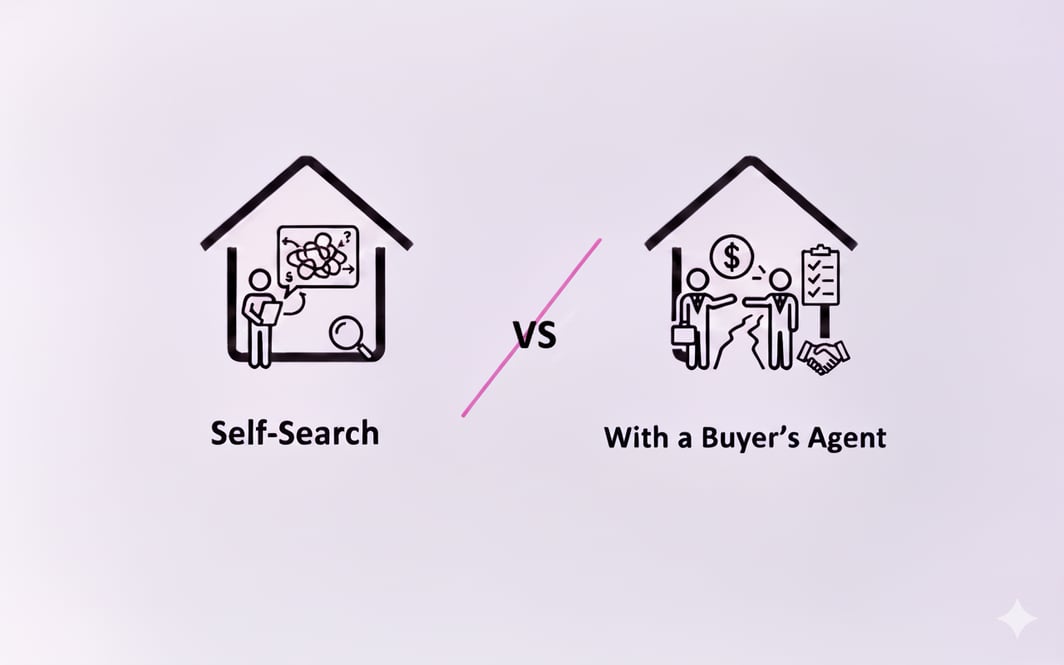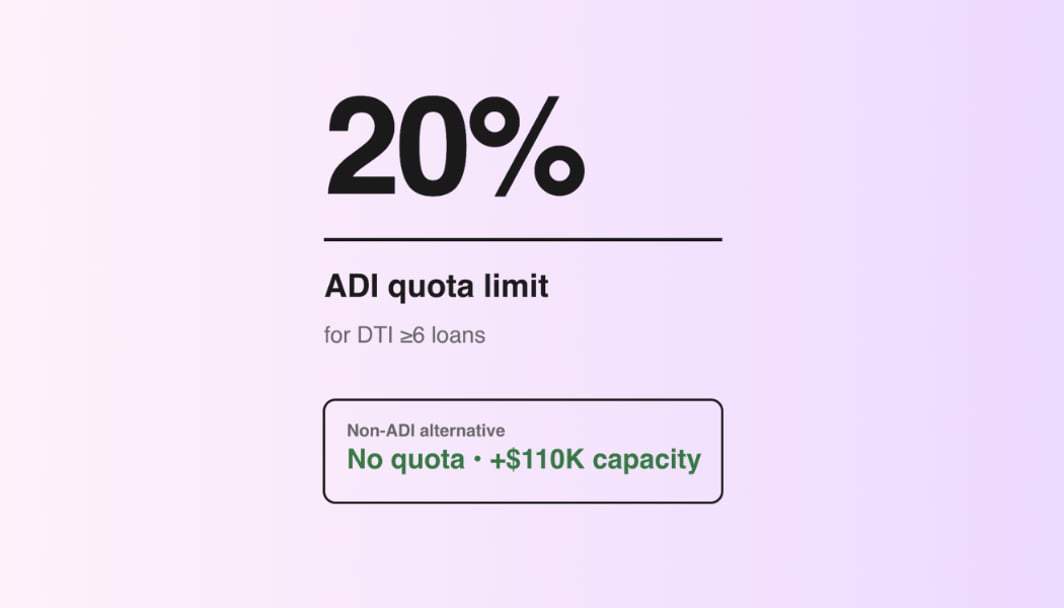The Insider's Edge: When to use a buyer's agent for your Australian property search
Navigating the Australian property market can be tough. Whether you’re a first-home buyer hoping to break into a busy Brisbane suburb or an investor looking at a duplex in Perth, the process is often stressful and confusing, with the constant worry of paying too much. Real estate agents are there to get the best price for the seller. So, who’s looking out for you?
This is where a buyer's agent comes in. Once a niche service for the wealthy, buyer's agents are becoming an increasingly common sight at open homes and auctions across the country. They offer invaluable assistance not only to homebuyers but also to investors by sourcing high-yield properties and supporting portfolio growth strategies. But what do they actually do? Are they worth the cost, and how do you know if you need one? Let's break it down.
1. Before diving in, let's clarify exactly what a buyer’s agent does and why it matters.
First things first, let’s clear up a common mix-up. A buyer’s agent is not the same as the real estate agent you meet at an open for inspection. That agent—the one with the glossy brochure and the firm handshake—is a selling agent. Their legal and ethical duty, as well as their fiduciary responsibility, is to the vendor (the seller). Their goal is to maximise the sale price.
A buyer’s agent, also known as a buyer's advocate, is a licensed professional who works exclusively on behalf of the buyer. Their job is to help you find the right property at the best price and on the best terms. They act as your representative throughout the process.
What does a buyer's agent do? Their services typically fall into a few key areas:
- The Search: They don't just scroll through Domain and realestate.com.au. A good buyer's agent has a robust network of industry contacts, providing them with access to off-market and pre-market properties that you would otherwise not see. This is a massive advantage in competitive markets.
- Due Diligence: It takes the emotion out of the equation. They’ll conduct a thorough appraisal of a property, providing an objective view of its true market value. They’ll analyse recent sales, assess the suburb’s long-term potential, and spot red flags you might miss.
- The Negotiation: This is where they really earn their stripes. They are professional negotiators who deal with selling agents on a daily basis. Whether it’s a private treaty sale or a high-pressure auction, they use their expertise to secure the property. Their strategies often involve leveraging emotional intelligence and data-driven insights to get the upper hand.
- The Process: From making an offer to liaising with conveyancers, building inspectors, and mortgage brokers, they coordinate the entire buying process, saving you time and a mountain of paperwork.
The key difference is who they represent. The selling agent works for the seller, while the buyer’s agent is there to support and guide you through the buying process.
2. The Real Value: benefits of having an expert on your side
So, should you use a buyer’s agent? The answer often depends on your circumstances, but the benefits can be substantial, especially in Australia’s often-volatile market.
Saving Money (Yes, Really) It may seem counterintuitive, but skilled buyer's agents can negotiate discounts that often cover their fee. Reports suggest savings of 4-5% or more on a property’s price, and sometimes higher due to market expertise. For example, an investor in Melbourne recently used a buyer's agent to secure an off-market apartment originally listed at $850,000 for just $780,000, resulting in a $70,000 savings after fees were applied.
Gaining Access In busy markets, buyer's agents have connections with selling agents and can learn of off-market listings. This allows you to view and make an offer before most buyers are aware of the property.
Saving Time and Sanity: Searching for a house requires considerable time and effort—weekends spent attending open homes, numerous agent calls, and hours of research. A buyer's agent handles these tasks, finding properties that match your needs and saving you time, thereby preventing wasted effort, especially for busy or remote buyers.
A Game-Changer for First-Home Buyers. If you’re a first-home buyer, it can feel like the odds are against you. You’re competing with experienced investors and seasoned selling agents who are familiar with the process. Many people think buyer's agents are just for investors, but they can be especially helpful for first-time buyers. They offer the knowledge and support you might not have yet. They can help with negotiations, explain contracts, and help you avoid expensive mistakes. In today’s tough market, their help can make the difference between buying a home and missing out.
Are there any downsides? The most obvious con is the cost, which we’ll cover next. You are paying for a professional service. Another potential issue is finding a good agent. The industry has seen a surge in popularity, accompanied by a rise in inexperienced operators. Choosing the wrong agent can lead to a poor outcome; therefore, due diligence is crucial. For experienced investors, additional vetting steps can be highly beneficial. You may want to inquire about an agent's track record with similar investment properties or their experience with complex transactions. Checking their history with multi-property acquisitions or those requiring negotiating leases can offer insight into their capabilities. You can also request to see any awards or recognitions they've received, inquire about their referral rates, and ask for case studies that showcase their expertise in handling challenging scenarios.
3. Crunching the numbers: costs & fees in Australia
So, how much does a buyer's agent cost? There’s no single answer, as fees vary based on the agent, the location, and the scope of service. The two main structures you’ll encounter are:
- Fixed Fee: This is an agreed-upon flat fee for the service, regardless of the property's final price. In Australia, this can range from around $8,000 to $30,000 plus GST. Many buyers prefer this model as it provides cost certainty. It also removes any potential conflict of interest where an agent might encourage you to spend more to increase their commission.
- Percentage of Purchase Price: This is a commission-based fee, typically ranging from 0.9% to 3% of the final purchase price. The national average sits around 2% to 2.5%. For a $1 million property, a 2% fee would be $20,000. Some argue that this model creates a conflict of interest, as a higher purchase price results in a higher fee for the agent. However, reputable agents build their business on client satisfaction and successful outcomes, not on squeezing a few extra hundred dollars from a deal.
Is it worth it? A cost-benefit analysis. The key question is whether the agent’s service provides a net financial benefit. Let’s use a simple example.
- Property Price: $900,000
- Buyer's Agent Fee (Fixed): $15,000
- Negotiated Discount: Let's say the agent negotiates the price down from an expected $910,000 to $880,000, resulting in a $30,000 savings.
In this scenario, your net savings are $15,000 ($30,000 discount - $15,000 fee). This doesn’t even factor in the value of accessing off-market properties or avoiding a lemon that could cost you tens of thousands in repairs down the track. Generally, the service becomes a clear financial benefit on properties valued at $500,000 or more, where the potential for a meaningful negotiated discount can easily eclipse the agent's fee. Additionally, for investors, it’s important to note that the fees paid for a buyer’s agent can often be tax-deductible, adding another layer of financial advantage. However, specific tax benefits can vary, so it is crucial to consult with a financial advisor or tax professional to understand the implications for your situation.
4. How to find a good one: your vetting checklist
Choosing the right buyer’s agent is very important. A good agent can make a big difference, while a poor choice can cost you money. Here’s a practical guide to finding the right person.
Start with the basics:
- Licensing and Insurance: Ensure they are a fully licensed real estate agent in your state and hold Professional Indemnity Insurance. You can usually check this on your state's Fair Trading or Consumer Affairs website.
- Industry Membership: Consider joining a professional body, such as the Real Estate Buyers Agents Association of Australia (REBAA). Members are bound by a code of ethics and are typically experienced specialists.
- Exclusivity: Ask if they are an exclusive buyer's agent. Some traditional agencies offer "buyer's agent services" on the side, which can create conflicts of interest. You want someone who is 100% on your team.
The Interview: Key Questions to Ask. Once you have a shortlist, it’s time to interview them. Don't be shy; you're hiring them for a crucial job.
- "What’s your experience in my target area and price range?" You need an agent with deep, local market knowledge. Ask for recent examples of properties they've purchased for clients in the suburbs you're interested in.
- "How do you charge for your services?" Get a crystal-clear breakdown of their fee structure. Are there upfront engagement fees? What happens if you don't end up making a purchase?
- "Can you provide references from recent clients?" Speaking to past clients is one of the most effective ways to assess their performance, communication style, and reliability.
- "What’s your process for searching, shortlisting, and negotiating?" A good agent will have a clear, documented strategy. This will give you confidence that they are methodical and professional.
- "How many clients are you currently working with?" You want an agent who has time for you. If they're juggling 20 clients, you might not get the personalised service you're paying for.
Watch for warning signs, such as unclear fees, pressure to sign up quickly, or a lack of examples of their work. It’s important to feel comfortable with your agent and trust your judgment.
5. The lay of the land: A city-by-city guide
The value and role of a buyer's agent can shift depending on the unique conditions of each Australian capital city market.
Sydney: The Competitive Cauldron Sydney’s market is notoriously fast-paced and competitive. High auction clearance rates mean you need an agent who is a master strategist. With average discounts of only 1-2%, an agent's value here is less about a huge price chop and more about simply securing a quality property. They provide access to off-market properties and the bidding prowess needed to win at auction. Fees tend to be on the higher end, often ranging from 1.5% to 2.5%, reflecting the high property values and expertise required.
Melbourne: The Auction Capital. Similar to Sydney, Melbourne is an auction-centric market. A buyer's agent needs to be an expert at reading the room, understanding bidding tactics, and advising when to make a strong offer and when to walk away. The market offers slightly better discounts than Sydney, averaging around 2-3%. An agent's local knowledge is key, as Melbourne is a city of distinct neighbourhood pockets, each with its own micro-market.
Brisbane: The Rising Star Brisbane has seen incredible growth, with a five-year increase of 83.5%. This has attracted a flood of interstate investors. For buyers unfamiliar with the local landscape, an agent is vital for identifying high-growth areas and avoiding overpriced "hotspots." Fees are generally more competitive than in the southern capitals, often in the 1-2% range or attractive fixed-fee arrangements.
Perth: The Growth Engine Perth is currently a market with strong growth potential. Here, a buyer’s agent can deliver significant value by identifying undervalued suburbs before they take off. They can achieve some of the highest average discounts in the country, ranging from 4% to 5%. For investors looking to capitalise on Perth's economic trajectory, a local expert is a powerful ally.
Adelaide: The Steady Achiever Adelaide's market is characterised by affordability and steady growth. A buyer’s agent can help uncover hidden gems and provide a competitive edge in a market where good stock can be tightly held. Adelaide has a growing number of agents offering competitive flat-fee services, making it a more accessible option for buyers across various price points.
In summary, using a buyer’s agent offers a distinct advantage: expert guidance, broader access to properties, and support through the entire process. Consider your own situation and goals to determine whether their services will help you achieve your desired results.
Take control of your property journey now. Book a consultation with a vetted buyer's agent to uncover tailored opportunities and improve your investment outcomes. Start your smarter investment path today.




